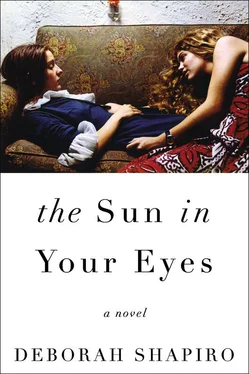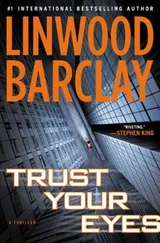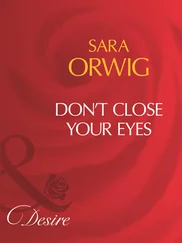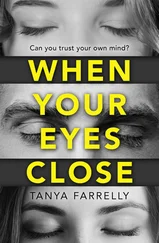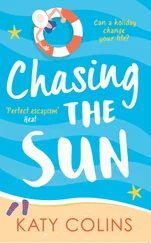“Hey, can I come in?” she said.
“Yeah!” Andy said. “Get in here.”
“I know this song.”
“It’s the perfect song,” said Andy. “The whole record is fucking great. You like Jesse Parrish?”
She took her residence hall ID card out of her bag and, almost contritely, showed it to Andy, anticipating his embarrassment.
“Wow. You’re that Lee.”
“I’m that Lee.”
“I should have known. I mean, it makes sense. I know who you are. I mean, I don’t mean it like that, like I know who you are or I know all about you or anything. But. Like. Right.”
He didn’t tell her, just then, that he had read the biography Linda authorized and allowed herself to be interviewed for, as well as the other one, which she hadn’t and which was less flattering though nevertheless obviously written by a Jesse Parrish enthusiast. Later, over time, he admitted that he’d watched various concert films and sent away to an address in Michigan for a compilation of fuzzy clips on VHS. He’d seen a picture of Lee as a toddler, curled up in her father’s guitar case. Another one of her on Jesse’s shoulders. But he’d seen images of Lee only as a child and he imagined she would be beautiful like Linda (and like Jesse) but not as troubling as her mother. He’d wondered whatever happened to that girl, who would be his age. And he’d even permitted himself to fantasize that if they ever had the chance to meet, they might get along. She might be the kind of person who would recognize something in him and might provide him the kind of understanding her father’s music did. Far-fetched, all of this. Preposterous. But it’s where his mind had gone on occasion, playing it out to a point where he might meet Linda West. Not that he was dying to meet her. He never quite grasped her appeal. Linda West had been all about sex, which he knew he was supposed to think was a good thing, those photographs of her in a sheer blouse with no bra, her nipples hard, but it also embarrassed him. He wasn’t embarrassed, though, when he said this to Lee. Or maybe a little, but mostly, by that point, he was open, even brave with her, and she was the one who struggled to be as forthright and unashamed with him.
“Right,” Lee said. They stopped talking for a minute. She looked at her hands, at her father’s ring, at an elm tree outside the window. Then she asked him how his classes were going so far. He went into great detail about the scheduling conflict he was trying to work out during add/drop. It involved a film theory class he wanted to try and the fact that he’d taken AP calculus in high school so he should be able to enroll in the advanced math course that was more optimally timed. She thought that might have been the first time she ever heard someone use the word “optimally” in conversation. She wished him luck and, speaking of timing, said she had better be off to her late-afternoon survey on architecture and urbanism.
She wrote “Parthenon” and “Vitruvius” and “morphology” and “cobbler” in her notebook and when the lecture was over, she walked to the record store near campus and bought a copy of Motel Television. She had heard all of her father’s music before. At eleven, she had listened to “Yours” over and over as though it contained a message for her from beyond the grave. Still, she’d never experienced the connection that Andy did. How a song, like nothing else, can possess you.
Linda had all of Jesse’s output at home, of course, not just all of the albums and singles on vinyl but also eight-tracks, cassettes, and all the recently reissued CDs. But Lee hadn’t brought any of it with her to college. That evening, while her roommate (a very nice girl she had very little in common with) was out at dinner, she put it on. As she listened to it, she imagined Andy listening to it, and she heard a heartbeat there that she hadn’t picked up on before. She listened to it straight through and when her roommate returned, she apologized for being rude and then put on headphones, lay back on her narrow bed, and listened to it again. If this is what people were going to project onto her, was that so bad? She had read an interview once with a young actress, the daughter of a more famous actress. No disrespect to her mother, who was her greatest champion (and whom she spoke of as one might a lighthouse or the Statue of Liberty — shining and exemplary but sexless and not in competition with her), said the young actress (whose career would later tank), but you want people to like and respect you for you, and she often found that hard to come by. Lee was beginning to understand this. She’d been somewhat sheltered from this growing up in the world that she had. Most of the kids she knew were more or less like her in this regard. Lee wanted people to like her — or not like her — for who she was, only she wasn’t really sure who or what that was.
Days later, she approached Andy in a corner of the quad, and they both pretended they hadn’t been avoiding each other.
“Do you know what you need?” she asked him.
“Uh, no. What?”
“You need to come with me tonight.”
She took him to a party that an older girl she knew from high school had invited her to. A house off-campus throbbing with people. Entering it was like making your way inside a dark, warm muscle as it contracted and released. The pulsating absorbed her so she became part of it. Which is what she wanted, to move with it and not to think. She wasn’t so sure about Andy. She could sense him not wanting to get separated from her. She didn’t really think he was going to dance. She knew he was going to stand there and she would dance and he would watch her. Which he did. And then she would pull him in and he would be hesitant, reluctant, but she would make him stay and dance with her until he lost himself. Which he never quite did. She couldn’t tell if he looked bored because he thought that’s how you were supposed to look in a place like this, or if he actually was bored.
“Do you want to go?” she shouted.
“What?” he shouted back.
She took his hand and pushed their way through until they had expelled themselves back onto the street.
“Sorry,” he said. “It’s not really my scene.”
“Oh, you have a scene?”
“Yeah. I’ve got a scene.”
“What’s your scene?”
“I’d say it’s centered around long, uncomfortable pauses. And a very close relationship with my right hand.”
“Did you take something?” Almost laughing, almost proud of him.
“Yes, but I don’t know what the fuck it was. Can you get me back to my bed please?”
“Yeah. Of course.”
He couldn’t find his room key. So she took him back to her bed, where he fell asleep before either of them had made enough noise to wake her roommate. She thought better of getting in there next to him, letting him wake up with her in his arms and misleading him more — misleading herself. She took a pillow and lay down on the floor.
They woke Sunday morning to the first fall-like day of the year. A bright blue sky and a few gentle cumulous clouds. A day made for wrought iron gates and piles of leaves and wool sweaters and apple cider, the kind of New England fantasy Lee had growing up in Los Angeles. A day that demanded, at the very least, a walk. The coolness of the air seemed to do Andy good, though they walked slowly, aimlessly, more in recuperation than invigoration. They stopped for hot chocolate (on the idealized beverage equivalency scale, in the same class as apple cider, which proved to be elusive in reality), taking it with them as they continued across campus and up along streets of old houses with small historic plaques and sizable yards. Then they cut east, downhill, toward the stadium.
Читать дальше
